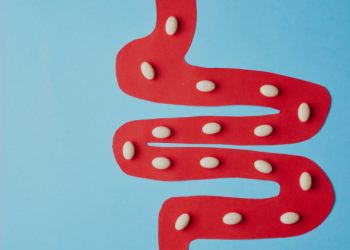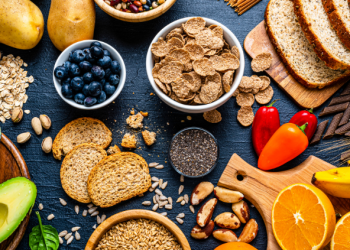How Exercise Improves Microbiome Health (and Vice Versa)
By Mary Grace Descourouez, MS, NBC-HWC

The human gastrointestinal tract is home to trillions of microorganisms that create the gut microbiome. The gut is where the body digests and absorbs nutrients from our food and, therefore, where we get our energy to perform daily human functions. Microbiota are microorganisms in the gut microbiome that help the body harvest energy, fight pathogens, and regulate immunity. Having a high diversity of microbiota helps us to process food effectively, providing the substrates and nutrients needed to keep us going throughout the day. Therefore, it is crucial to make lifestyle choices that promote a healthy and diverse microbiome.
Many people know that a nutrient-rich diet contributes to a healthy microbiome, however, research shows that movement and exercise may also have a positive effect, and, inversely, a healthy microbiome may improve athletic performance.
“It is a relatively new field, but available studies suggest a bidirectional relationship between performance and the health of the microbiome,” says Anne Friedlander, PhD, Exercise Physiologist and Assistant Director of Stanford Lifestyle Medicine. “People who are more active have a healthier and more diverse microbiome, and that, in turn, provides the person with the nutrients required to enhance physical and cognitive performance. It is a mutually beneficial relationship.”
How Exercise Improves the Microbiome
Movement and exercise have many benefits on our overall health, including positive effects on the microbiome. Studies show that athletes have a more diverse microbiome composition than non-athletes. Microbiome diversity is important because it helps make our food’s nutrients more bioavailable for optimal functioning of the body.
Another study found that active women were associated with high microbiome diversity compared to sedentary women. Specifically, researchers found that consistent physical activity increased the amount of 11 genera of “good” bacteria, including Bifidobacterium spp, Roseburia hominis, Akkermansia muciniphila, and Faecalibacterium prausnitzii.
How the Microbiome Improves Athletic Performance
Just as exercise positively impacts the microbiome, emerging research shows that microbiome health may also play a part in enhancing exercise performance.
For example, a 2019 study showed that a specific gut microbiota in marathon runners may have enhanced their athletic performance on race day. In this study, researchers collected fecal samples from the runners before and after the marathon and compared them to microbiota of non-runners. The “good” bacteria Veillonella emerged as the most common in the runners, especially post marathon. Veillonella is a bacterial strain that converts exercise-induced lactate into propionate, which is a natural enzymatic process known to enhance athletic performance.
Researchers then put the Veillonella bacteria from the marathon runners into lab mice who underwent a treadmill exertion test to investigate the hypothesis that this bacterial strain enhances athletic performance. The results showed the mice improved performance by 13 percent after inoculation. This study is one of the first to infer that a healthy microbiome could enhance athletic performance.
“We have a long way to go to fully understand the complex system that involves the microbiome and athletic performance, but the early data look promising regarding gut health and exercise,” says Dr. Friedlander. “Exercise, along with eating fermented foods and fiber, is a great place to start if you want to improve your gut health and overall health.”






















